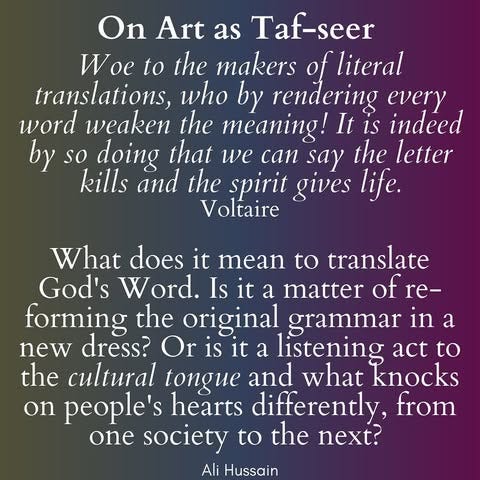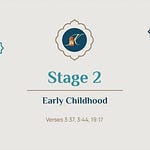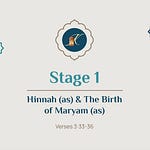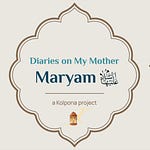In this video, I embody the question Dr. Ali Hussain posed when he asked, “[H]ow would it feel if we approached scripture and the Divine Word as we do a museum and art-site? …What if we asked: what is the Divine Artist trying to convey to me and what do I hear with my heart?”1 In this spirit, I spend this video reflecting on verse 3:36 of the Qur’ān, which is Hinnah’s du’ā (as).
As John Caputo describes, “God is not the answer but the opening of the question,”2 so when Hinnah (as) says, “My Lord! I have given birth to a girl…and the male is not like the female,”3 was this disappointment, or does something else ring out from within this mother’s heart?
Qur’ān 3:36
0:38 Abridged by a group of scholars under the supervision of Shaykh Safiur-Rahman Al-Mubarakpuri, Tafsir Ibn Kathir (Abridged; 10 Volumes) (Maktaba Darussalam, 2003); Seyyed Hossein Nasr, ed., The Study Quran: A New Translation and Commentary, First edition (New York, NY: HarperOne, an imprint of Collins Publishers, 2015).
2:09 Mubarakpuri, Tafsir Ibn Kathir; Nasr, The Study Quran; Abu-’l-Aʿlā al-Maudūdī, Towards understanding the Qur’ān. 1: Sūrahs 1 - 3, Rev. ed (Leicester: The Islamic Foundation, 1999).
2:24 Sayyid Quṭb, In the Shade of the Qurʼān =: Fī Ẓilāl al-Qurʼān, trans. Adil Salahi and A. A. Shamis (Leicester, U.K: The Islamic Foundation, 2003).
2:46 Yahiya Emerick, The Holy Qur’an in Today’s English, 2000; Allama Abdullah Yusuf Ali, The Holy Qur’an: Arabic Text, English Translation & Commentary with Revised English Translation, Commentary and Index (Lahore, Pakistan: Sh. Muhammad Ashraf Publishers & Booksellers, 2011).
5:02 Adrienne Rich, “Motherhood and Daughterhood,” in Of Woman Born: Motherhood as Experience and Institution (New York, NY: W. W. Norton & Company, Inc., 1986); Patricia Hill Collins, “Black Women and Motherhood,” in Black Feminist Thought: Knowledge, Consciousness and the Politics of Empowerment (Routledge, Taylor & Francis Group, 1990).
5:28 Rich, Of Woman Born, 218-219.
6:31 Ibid., 219-220.
7:19 Ibid., 219.
8:02 Ibid., 220-221.
9:30 Ibid., 221-225.
10:37 Ibid., 224-225.
11:00 Ibid., 225; Collins, “Black Women and Motherhood,” in Black Feminist Thought: Knowledge, Consciousness and the Politics of Empowerment.
12:24 Collins, Black Feminist Thought, 183.
13:11 Rich, Of Woman Born, 243-244.
15:23 Mubarakpuri, Tafsir Ibn Kathir; Yusuf Ali, The Holy Qur’an; Quṭb, In the Shade of the Qur’an; Muḥammad Taqī-ad-Dīn Ibn-ʿAbd-al-Qādir al-Hilālī and Muḥammad Muḥsin Ḫān, Interpretation of the Meanings of the Noble Qur’ân in the English Language: A Summarized Version of Commentaries of at-Tabari, al-Qurtubi and Ibn Katheer with Comments from Saheeh al-Bukhaari; [Summarized in One Volume] = Tafsīr Maʿānī al-Qurʾān al-Karīm Bi-’l-Luġa al-Inǧilīzīya (Riyadh: Maktaba Darussalam, 2007).
16:52 Rich, Of Woman Born, 246.
17:27 Ibid., 245.
17:55 Ibid.
18:11 Ibid., 246.







